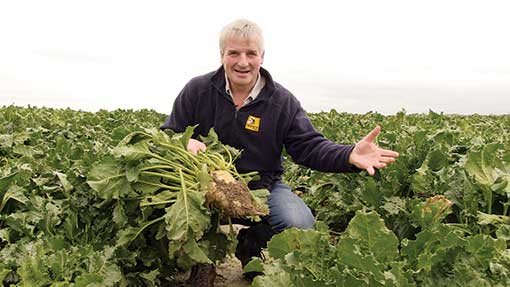Farmer Focus: Learn from soil to halt yield decline

At our last discussion group meeting we had an illustrated talk given by Tom Bradshaw, who had recently undertaken a Nuffield Scholarship studying the sustainability of current farming systems and in particular, the importance of soil organic matter.
He has a successful and growing farming business over in East Essex, but found time to undertake the scholarship, as it is on a subject he feels very passionate about.
On heavy land over here in the East, blackgrass seems to be everybody’s concern while on the lighter soils where there has been no livestock on the farms or organic manures applied for a number of years, declining fertility and low organic matter is becoming an increasing concern. Yields on these lighter soils have tapered off and the viability of farming has been underpinned by reasonably strong commodity prices in recent years, the single farm payment and low costs of finance.
On our farms here we have applied a lot of organic manures and waste over the years. In the past a lot of these were delivered free to farms, with suppliers glad for us to take it off their hands. A mixed arable rotation, along with our sheep enterprise, continue to help us on our light soils – we are able to grow upwards of 160ha of catch crop stubble turnips for winter feeding and as of today have 3,500 sheep out grazing them.
It is heartening to see that farmers are becoming increasingly concerned about their soils. This winter there is a range of workshops and discussion days being held and I am told they are well oversubscribed. I am going on a RASE version in April.
An in-depth study of soils at Kettering Rugby Club was had last Saturday from the vantage point of the front row on a pitch almost devoid of grass. As well as being the oldest player in the Cambridge Wanderers team by some 32 years, it was the first time in more than 40 years that I have played in a game that had to be abandoned due to lightening.
Robert Law, 2006 Farmers Weekly Farmer of the year, farms 1,500ha on the Hertfordshire/Essex/Cambridgeshire borders growing cereals, turnips, mustard, forage rape for seed and sugar beet, plus 300ha of grassland supporting a flock of 2,500 ewes. He also manages 500ha of Nottinghamshire sandland.
More from our arable Farmer Focus writers

